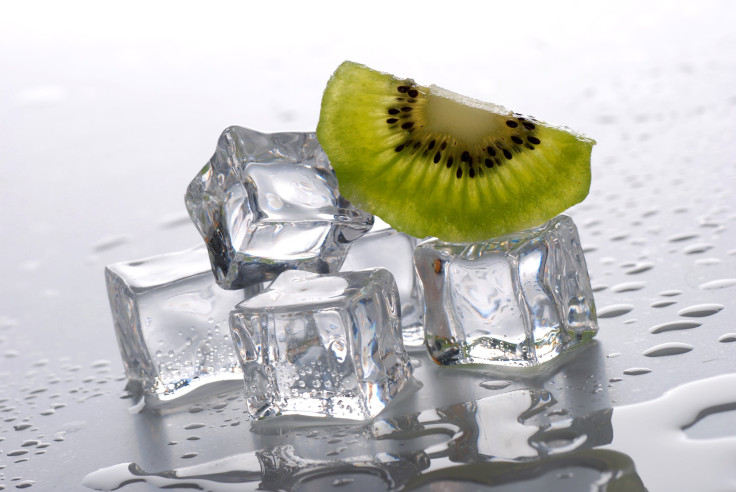Boost Brain Functions By Chewing On Ice, Improves Cognitive Abilities In People With Iron Deficiency

Ever sit down to dinner at your local restaurant to find the person next to you will not stop chewing the ice at the bottom of their empty glass? Is it enjoyable, a nervous tick, or are they getting some kind of benefit out of crushing ice with their teeth? A recent study conducted at the University of Pennsylvania has revealed that people who chew on ice as the result of an iron deficiency may actually be improving their neurocognitive abilities through their noisy behavior.
The compulsive desire to eat ice, also known as pagophagia, is nothing new in the medical community. This type of pica – a disorder that causes a strong appetite for substances with no nutrition — has long been associated with iron deficiency anemia — a condition that results from the body not having enough iron to produce hemoglobin, the part of red blood cells that allow it to carry oxygen throughout the body. UPenn researchers issued a survey that found pagophagia is much more common among people with an iron deficiency compared to healthy patients.
“They said, ‘It’s like a cup of coffee — I don’t feel awake unless I’m chewing ice,’” lead researcher Melissa Hunt said in a statement. “That immediately suggested to me there had to be a way of measuring an objective neurocognitive variable that ice was impacting for people with anemia.”
Hunt and her colleagues decided to test the alertness, vigilance, and reaction time of both heathy study participants and those suffering from iron deficiency anemia. Participants from both groups were asked to watch a computer screen that quickly displayed different images. They were asked to push a button after seeing a small square on top of a big square, but do nothing after seeing a big square on top of a small square. To show how long it took to focus on such a tedious task, images of different shapes flashed across the screen every second for 22 minutes.
Researchers controlled for hydration by giving the participants a cup of ice or an equal amount of room temperature water. Participants with iron deficiency anemia or severe attention deficit disorder produced slower and inconsistent reaction times when given a cup of room temperature water beforehand. However, when participants with the same conditions were given a cup of ice, they performed the task just as well as healthy participants.
“There is a very clear, functional impact on response time and cognitive processing seen only in anemic individuals,” Hunt added. “We think it has to be the case that ice is triggering some response that is getting more blood — and more oxygen — to the brain. The healthy controls have plenty of oxygen, so by getting a little more, they’re not getting any benefit from it.”
In addition to pagophagia, common symptoms of iron deficiency anemia include restless leg syndrome, poor appetite, fatigue, dizziness, headaches, and inflammation or soreness of the tongue. Chewing ice has been linked to soothing tongue inflammation in the past; however, previous research has also shown that cravings only stop when iron levels return to normal. Iron deficiency anemia can be caused by blood loss, low iron in your diet, inability to absorb iron, or pregnancy.
Source: Atuahene B, Belfer S, Hunt M. Pagophagia improves neuropsychological processing speed in iron-deficiency anemia. Medical Hypotheses. 2014.
Published by Medicaldaily.com



























